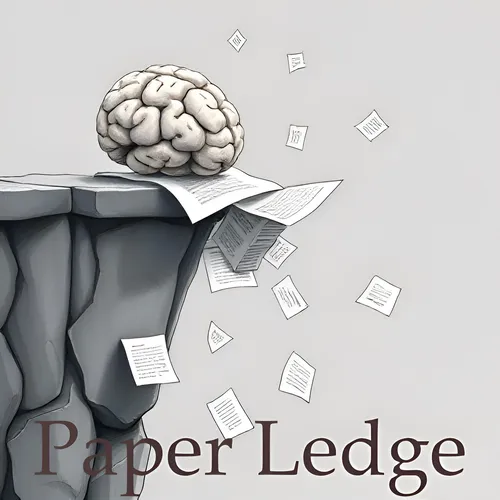Computer Vision - TurboTrain Towards Efficient and Balanced Multi-Task Learning for Multi-Agent Perception and Prediction
- Author
- ernestasposkus
- Published
- Thu 07 Aug 2025
- Episode Link
- https://www.paperledge.com/e/computer-vision-turbotrain-towards-efficient-and-balanced-multi-task-learning-for-multi-agent-perception-and-prediction/
Hey PaperLedge crew, Ernis here, ready to dive into some seriously cool research! Today, we're talking about making self-driving cars – or really, any team of robots working together – way smarter, faster, and more reliable.
So, imagine you’re trying to teach a group of friends to bake a cake. You could individually teach each person a single step, like cracking eggs or mixing flour. But wouldn't it be better to have them all learn every step together, so they can adapt and help each other out when things get tricky? That's the core idea behind "end-to-end training" in multi-agent systems – teaching a team of AI agents to perform a task collectively.
This paper tackles a big hurdle in that field: the pain of actually training these AI teams. Turns out, it's super complex. Researchers used to spend tons of time designing these complicated training pipelines, tweaking them, and babysitting the whole process. It was a real headache!
That’s where "TurboTrain" comes in. Think of it as a streamlined, high-performance engine for training multi-agent systems. The researchers basically built a system that automates a lot of the tedious work, making the whole process much faster and more efficient.
TurboTrain has two key ingredients:
- Pre-training Magic: They use a technique called "masked reconstruction learning." Imagine showing the system a picture with parts blacked out and asking it to fill in the blanks. This helps the system learn the patterns and relationships between different agents and how they change over time – kind of like learning to predict the next move in a chess game! This "pre-training" gets them a solid foundation before they even start learning the specific task.
- Balanced Teamwork: The second part is a clever way to balance different tasks the agents need to learn. Think of it like making sure everyone on your cake-baking team is equally good at both cracking eggs and decorating. The system uses something called "gradient conflict suppression" to stop one task from overshadowing the others, ensuring the team learns everything effectively.
The researchers tested TurboTrain on a real-world dataset called V2XPnP-Seq, which is all about cooperative driving. They showed that TurboTrain not only made the existing state-of-the-art models work better, but it also drastically cut down on training time. Basically, it's like going from a clunky old car to a super-charged sports car when it comes to training AI teams!
Here's a key takeaway:
Pre-training effectively captures spatiotemporal multi-agent features and significantly benefits downstream tasks.
In plain English: giving the AI agents a good foundation in understanding the world around them before teaching them specific tasks makes a huge difference!
Why does this matter?
- For self-driving car enthusiasts: This could lead to safer and more efficient autonomous vehicles that can better coordinate with each other.
- For robotics fans: This could be applied to any team of robots working together, like in warehouses, factories, or even search-and-rescue operations.
- For AI researchers: This offers a more efficient and automated way to train complex multi-agent systems, freeing up time to focus on other challenges.
So, what do you think, crew? A couple of questions that are swirling around in my head:
- Could this "TurboTrain" approach be adapted to train teams of humans more effectively in complex environments, like emergency response teams?
- What are the ethical considerations of creating highly coordinated AI teams that might eventually outperform human teams in certain tasks?
Let me know your thoughts! Until next time, keep learning and keep questioning!
Credit to Paper authors: Zewei Zhou, Seth Z. Zhao, Tianhui Cai, Zhiyu Huang, Bolei Zhou, Jiaqi Ma
